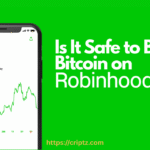One of the most common questions among new cryptocurrency users is: Do Bitcoin wallet addresses expire? Since wallet addresses are essential for sending and receiving Bitcoin, understanding their validity is crucial. The simple answer is no—Bitcoin wallet addresses do not expire. However, there are important details about security, privacy, and usability you should know before continuing to use an old address.
A Bitcoin wallet address, the unique identifier used to send and receive BTC, is a fundamental component of the blockchain ecosystem. Misconceptions about address expiration can lead to confusion, potentially risking funds or privacy. This article dives into the key facts and points about whether Bitcoin wallet addresses expire, covering technical details, wallet provider policies, security practices, and regulatory considerations. Whether you’re a beginner or a seasoned investor, this guide will clarify how to handle Bitcoin addresses effectively in today’s dynamic crypto environment.
What Are Bitcoin Wallet Addresses?
A Bitcoin wallet address is a unique string of 26–35 alphanumeric characters (e.g., bc1qar0srrr7xfkvy5l643lydnw9re59gtzzwf5mdq) generated from a public key, which is derived from a private key using cryptographic algorithms like ECDSA. These addresses act as destinations for sending and receiving Bitcoin on the blockchain. Unlike traditional bank accounts, Bitcoin addresses are pseudonymous, not inherently tied to personal information unless linked through a custodial service like an exchange. The Bitcoin protocol, created by Satoshi Nakamoto, ensures that addresses are permanent fixtures on the blockchain, with no built-in expiration mechanism. For example, addresses from Bitcoin’s genesis block in 2009, such as 1A1zP1eP5QGefi2DMPTfTL5SLmv7DivfNa, can still receive funds today, as verified by blockchain explorers like Blockchain.com.
Do Bitcoin Wallet Addresses Expire on the Blockchain?
From a technical perspective, Bitcoin wallet addresses do not expire on the blockchain. Once generated, an address is a cryptographic hash stored permanently on the Bitcoin ledger, which is immutable and decentralized. The blockchain imposes no time limits or inactivity rules that would invalidate an address. This means you can send Bitcoin to an address created a decade ago, and the funds will be recorded on the blockchain, accessible with the corresponding private key. Recent activity in 2025, such as dormant addresses from 2010–2012 moving millions in BTC, as reported on X, confirms that old addresses remain functional. The only scenario where an address becomes “unusable” is if the private key is lost, locking the funds forever—but the address itself persists on the blockchain without expiration.
Do Bitcoin Wallet Addresses Ever Expire?
No, they never expire. Once generated, a Bitcoin wallet address will remain valid for as long as the Bitcoin blockchain exists. You can send BTC to the same address years later and still receive it—provided you have the private key associated with it.
For example:
- A Bitcoin wallet address created in 2015 can still receive funds in 2025.
- Even if you stop using that address, it still exists permanently on the blockchain.
Why Bitcoin Wallet Addresses Don’t Expire?
Bitcoin’s blockchain is immutable and decentralized, meaning:
- Permanent Record – Transactions and addresses are stored on the blockchain forever.
- No Central Control – There’s no central authority that can deactivate your address.
- Math-Based Security – Addresses are generated from cryptographic keys, not temporary accounts.
Custodial Wallets and Exchange Policies
While the Bitcoin protocol ensures addresses never expire, custodial wallets and exchanges (e.g., Coinbase, Binance, or Kraken) may impose their own policies, creating the impression of expiration. These platforms often generate a new Bitcoin address for each transaction to enhance user privacy and comply with anti-money laundering (AML) regulations. Some may deactivate or “archive” unused addresses after a period of inactivity—typically 6–12 months—for operational efficiency or security. For instance, Coinbase’s help center notes that old addresses may be marked inactive, but any Bitcoin sent to them still reaches the user’s account, as the platform retains control of the private keys. Non-custodial wallets, such as Electrum, Wasabi, or hardware wallets like Ledger Nano X and Trezor Safe 5, give users full control, meaning their addresses remain usable indefinitely without external interference, provided the private key is secure.
When a Wallet Address Might Become Unusable?
While wallet addresses don’t expire, certain situations can make them unusable:
- Lost Private Key – If you lose access to your private key or recovery phrase, the funds in that address are permanently inaccessible.
- Exchange-Generated Addresses – Some exchanges or custodial wallets rotate deposit addresses. If you send BTC to an old one after it’s deactivated by the platform, you could lose funds.
- Damaged Paper Wallet – If your backup is destroyed and you don’t have another copy, the address is effectively useless.
Why Reusing Bitcoin Addresses Is Risky?
Although Bitcoin wallet addresses don’t expire, reusing the same address for multiple transactions is strongly discouraged due to significant privacy and security risks. The Bitcoin blockchain is transparent, and all transactions are publicly visible. Reusing an address allows anyone to track your transaction history, potentially linking it to your identity if you use a KYC-compliant exchange. This transparency can also make reused addresses targets for hackers, as frequent activity signals a potentially valuable wallet. Modern wallets use Hierarchical Deterministic (HD) structures to generate a new address for each transaction, a practice endorsed by the Bitcoin community on platforms like Bitcointalk. For example, wallets like Trust Wallet or MetaMask automatically create fresh addresses to minimize these risks, aligning with best practices for 2025’s heightened focus on privacy.
The Risk of Losing Access to Addresses
The closest equivalent to a Bitcoin address “expiring” is losing access to its private key, which renders the associated funds inaccessible. Bitcoin’s decentralized design means there’s no central authority to recover lost keys, unlike bank accounts with password resets. In 2025, data from Glassnode estimates that approximately 3.9 million BTC—about 20% of the circulating supply—is lost due to forgotten private keys or discarded wallets. To prevent this, users should store their private keys or seed phrases securely, using hardware wallets like Ledger Nano X or offline backups like encrypted USB drives or steel plates. Regularly testing your recovery process ensures you can access your addresses, especially for long-term storage.
Regulatory and Practical Considerations in 2025
In 2025, regulatory frameworks like the U.S. Bank Secrecy Act (BSA) and the EU’s Markets in Crypto-Assets (MiCA) regulation don’t directly address Bitcoin address expiration but require custodial platforms to monitor transactions and report suspicious activities. Under new IRS rules effective January 2025, brokers must report digital asset transactions via Form 1099-DA, which may lead exchanges to limit the use of old addresses for compliance purposes. For example, large transactions to old addresses might trigger additional scrutiny to verify the source of funds. Non-custodial wallet users are unaffected by such policies, but they must stay updated on wallet software to ensure compatibility with Bitcoin network upgrades, such as Taproot or Schnorr signatures, which enhance transaction efficiency. Checking wallet provider terms and maintaining software updates is critical for seamless address use.
Best Practices for Managing Bitcoin Wallet Addresses
To ensure your Bitcoin wallet addresses remain secure and functional in 2025, follow these best practices:
- Choose Non-Custodial Wallets: Use wallets like Electrum, Wasabi, or hardware wallets (Ledger Nano X, Trezor Safe 5) to retain full control over your addresses and private keys, avoiding custodial policies.
- Generate New Addresses: Create a new address for each transaction using HD wallets to protect privacy and reduce security risks.
- Secure Private Keys: Store seed phrases offline in a secure location, such as a safe or hardware wallet, and avoid digital storage to prevent hacks.
- Check Custodial Policies: If using an exchange, review their address management terms, as some may deactivate old addresses, requiring coordination to access funds.
- Stay Compliant: Track transactions for tax reporting, especially with 2025’s IRS Form 1099-DA requirements, and consult a tax professional for large holdings.
- Update Wallet Software: Regularly update your wallet to maintain compatibility with Bitcoin network upgrades, ensuring addresses function smoothly.
Conclusion: Bitcoin Wallet Addresses Never Expire
Bitcoin wallet addresses do not expire on the blockchain, remaining valid indefinitely as long as the associated private key is accessible. However, custodial wallets and exchanges may impose policies that deactivate unused addresses, and reusing addresses can compromise privacy and security. In 2025, with stricter regulatory requirements like the IRS’s Form 1099-DA and ongoing network upgrades, managing Bitcoin addresses effectively is critical. By using non-custodial wallets, generating new addresses for each transaction, securing private keys, and staying informed about platform policies and regulations, you can safeguard your Bitcoin holdings. Whether you’re transacting frequently or hodling for the long term, these practices ensure your addresses remain functional and your funds secure in the evolving crypto landscape.
Frequently Asked Questions
What happens to dead bitcoin wallets?
Dead Bitcoin wallets, whose private keys are lost or inaccessible, make their funds permanently unreachable. The Bitcoin remains on the blockchain but can’t be moved or spent by anyone. Over time, these lost coins reduce the total circulating supply, potentially increasing scarcity.
Are Bitcoin addresses reusable?
Yes, Bitcoin addresses are reusable and can receive funds multiple times. However, reusing them can compromise privacy, as all transactions linked to that address are visible on the blockchain. For better security and anonymity, most wallets generate a new address for each transaction.
Does a BTC wallet expire?
A BTC wallet does not expire as long as you have access to its private keys. You can use it anytime to send or receive Bitcoin. However, if you lose the keys or recovery phrase, the wallet becomes inaccessible, and the funds are permanently lost.
Is it possible to recover a lost old bitcoin wallet?
Recovering a lost old Bitcoin wallet is only possible if you still have its private key, recovery phrase, or backup file. Without these, access to the funds is permanently lost, as Bitcoin transactions are irreversible and there’s no central authority to reset or recover wallets.
How long is a bitcoin wallet address valid?
A Bitcoin wallet address is valid indefinitely and doesn’t expire. It can be used to receive Bitcoin anytime as long as you control the private key. However, for better privacy and security, it’s recommended to use a new address for each transaction rather than reusing the same one repeatedly.
How long is a BTC address active?
A BTC address remains active indefinitely and can receive Bitcoin anytime if you control its private key. It doesn’t expire or deactivate. However, for enhanced privacy and security, many users prefer to generate a new address for each transaction instead of reusing the same one repeatedly.
What happens if you send Bitcoin to an expired address?
Bitcoin addresses never expire, so sending Bitcoin to an “expired” address still works if the private key is accessible. However, if the private key is lost or the wallet is inaccessible, the funds become permanently locked with no way to recover them. Transactions on the blockchain are irreversible, so always double-check addresses before sending.
Ryan Matta is an independent crypto journalist, analyst, and content creator renowned for his sharp insights into the latest cryptocurrency news and regulatory updates. At
criptz, Ryan Matta brings his journalistic rigor to the forefront, providing audience-focused updates that are well-researched, balanced, and essential for anyone staying ahead in the fast-moving world of crypto policy and regulation.
Why Trust CRIPTZ?
At criptz.com, we bring you up-to-the-minute cryptocurrency news and expert analysis in 2025. Our seasoned team delivers accurate coverage of market trends, blockchain breakthroughs, and emerging innovations, backed by strict editorial standards. With 24/7 reporting on price movements, regulations, and tech advancements, we empower traders and investors to navigate the fast-paced crypto world with confidence. Count on Criptz.com for trustworthy insights into digital assets.


![Do Bitcoin Addresses Expire [Complete 2025 Guide]](https://criptz.com/wp-content/uploads/2025/08/Do-Bitcoin-Addresses-Expire-Complete-2025-Guide-150x150.png)



